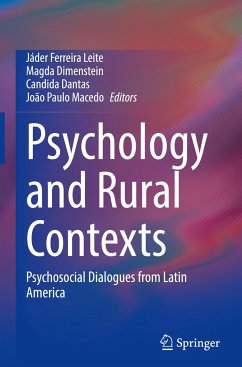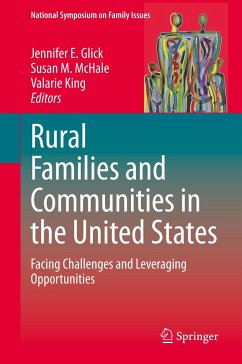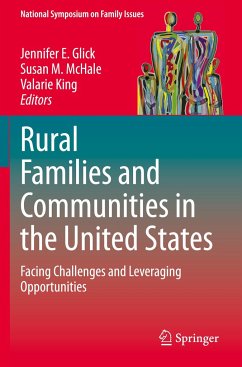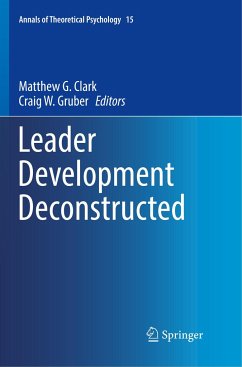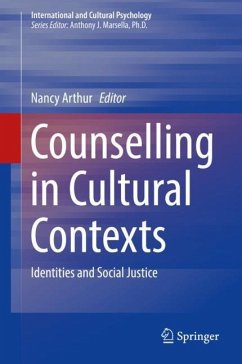
Psychology and Rural Contexts
Psychosocial Dialogues from Latin America
Herausgegeben: Leite, Jáder Ferreira; Dimenstein, Magda; Dantas, Candida; Macedo, Joao Paulo
Versandkostenfrei!
Versandfertig in 6-10 Tagen
113,99 €
inkl. MwSt.

PAYBACK Punkte
57 °P sammeln!
This book brings together a selection of theoretical reflections, empirical researches and professional experiences to showcase the increasing production of psychological studies in rural contexts developed in Latin America in recent years. Psychology's tradition of science and eminently urban profession has produced a void of reflections and approaches on important actors of the societies that constitute their existence in rural contexts and in relation - whether of integration, conflicts and contradictions - with urban agents. But a new generation of psychologists are turning their attention...
This book brings together a selection of theoretical reflections, empirical researches and professional experiences to showcase the increasing production of psychological studies in rural contexts developed in Latin America in recent years. Psychology's tradition of science and eminently urban profession has produced a void of reflections and approaches on important actors of the societies that constitute their existence in rural contexts and in relation - whether of integration, conflicts and contradictions - with urban agents. But a new generation of psychologists are turning their attention to rural contexts, especially in Latin America.
This volume aims to present a selection of these psychological studies and interventions developed in rural contexts from a psychosocial and interdisciplinary perspective, developed together with various social actors who live and work in rural spaces, that have an important relationship with land and nature both in terms of the elaborationof their history, the production of their subjectivities and identity ties with the territory, and the engagement in struggles for the right to land and for public policies that guarantee access to education and health services, technical assistance and infrastructure for its working activities.
The book is divided in five parts, each one dedicated to a dimension of psychosocial studies and interventions in rural contexts: theoretical approaches; mental health and rural populations; social movements, communities and resistance practices; gender relations and subjectivation processes; and environment and sustainability. Chapters in each axis prioritize reports of experiences and research conducted with participatory approaches, producing new perspectives and reflections that contribute to the advancement of knowledge in the field of psychology, both regionally and globally.
This volume aims to present a selection of these psychological studies and interventions developed in rural contexts from a psychosocial and interdisciplinary perspective, developed together with various social actors who live and work in rural spaces, that have an important relationship with land and nature both in terms of the elaborationof their history, the production of their subjectivities and identity ties with the territory, and the engagement in struggles for the right to land and for public policies that guarantee access to education and health services, technical assistance and infrastructure for its working activities.
The book is divided in five parts, each one dedicated to a dimension of psychosocial studies and interventions in rural contexts: theoretical approaches; mental health and rural populations; social movements, communities and resistance practices; gender relations and subjectivation processes; and environment and sustainability. Chapters in each axis prioritize reports of experiences and research conducted with participatory approaches, producing new perspectives and reflections that contribute to the advancement of knowledge in the field of psychology, both regionally and globally.





